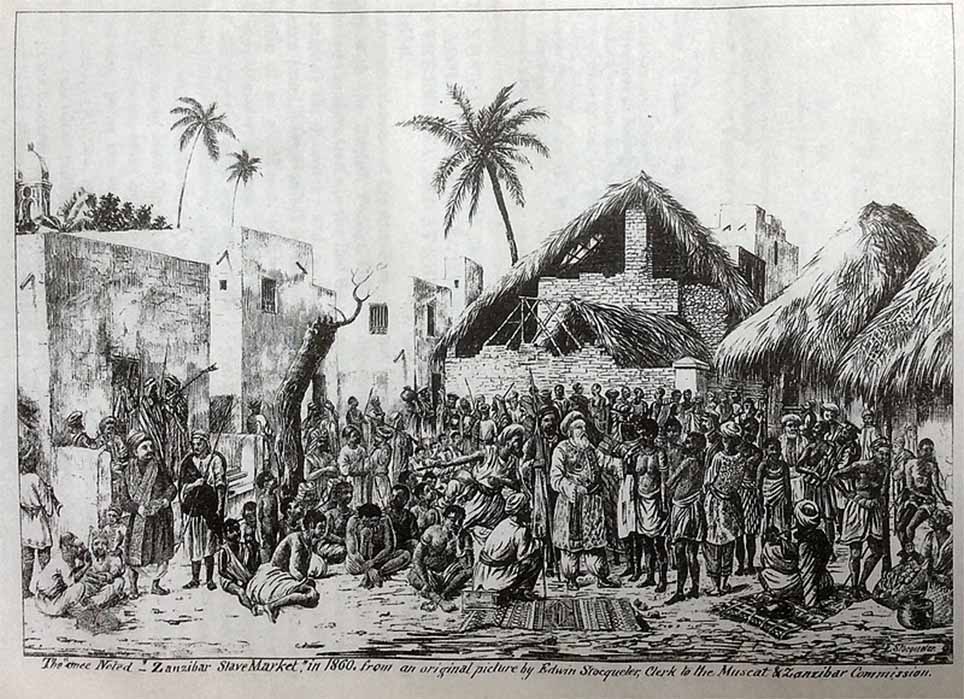
The Zanj Rebellion, Revolt Of African Slaves Against The Abbasid Caliphate
Tucked away in an obscure chapter of medieval history, the Zanj rebellion, which raged between 869 to 883 AD, originating in the city of Basra in present-day Iraq, remains relatively unknown to the West. The rebellion pitted African slaves against their Arab masters in a series of events so disruptive it plunged the Abbasid Caliphate into 15 years of turmoil. Led by their charismatic Persian leader Ali, the Zanj insurgency was one of the largest slave mutinies ever recorded and certainly one of the most brutal, featuring horrendous acts of violence perpetrated in equal measure by both sides. While the slave-masters were angered by the disobedience of human beings they considered as animals, those bound in chains were inspired by a distinct sense of revenge, harnessing it to perform grisly atrocities against those who had wronged them.

Zanzibar slave market by Edwin Stocqueler (1860) (Public Domain)
The Abbasid Caliphate
The Abbasid Caliphate came to power in 749 after exterminating the men, women, and children of the Umayyad Dynasty in an infamously violent coup. The Abbasid’s hatred for the Umayyads extended even to long-dead monarchs, with the corpse of previous sultan Caliph Hisham exhumed, whipped, crucified, and immolated. Centering their government in Baghdad from 762, the Abbasid caliphs began a process of organization and cultural development lasting until the reign of Caliph al-Ma’mun from 813 to 833, who most notably commissioned the translation of Classical Greek scientific and philosophical treatises into Arabic.
Following his death, the Abbasid Caliphate entered into a period of decline which witnessed the loss of territories due to the growing independence of regional governors, who started to breakaway and establish their own states such as the Cordova Umayyad Dynasty in Spain, the Idrisid Dynasty in Morocco, and the Aghlabid Dynasty in northern Africa, and thus by the ninth century Abbasid jurisdiction only extended to the immediate vicinity of Baghdad.

Map of the region of Iraq in the ninth–10th centuries (Ro4444 / CC BY-SA 3.0)
The Need for Slave Labor
By 869, after being stripped of many of their possessions in North Africa, Central Asia, Persia, and Afghanistan, the Abbasids started to refocus their efforts into transforming the barren, surrounding areas still under their control into vast centers of grain production, in particular the province of lower Mesopotamia, (in southern Iraq), where Abbasid policymakers took advantage of the Tigris and Euphrates rivers to create a network of canals and dams intended to irrigate the surrounding lands. It was a formidable task but also incredibly lucrative, for any man who made the reclaimed land productive would automatically receive ownership of it, prompting a high increase in the demand for slave labor.

A Zanj slave gang in Zanzibar by W.A Churchill in the London News (1889) (Public Domain)




